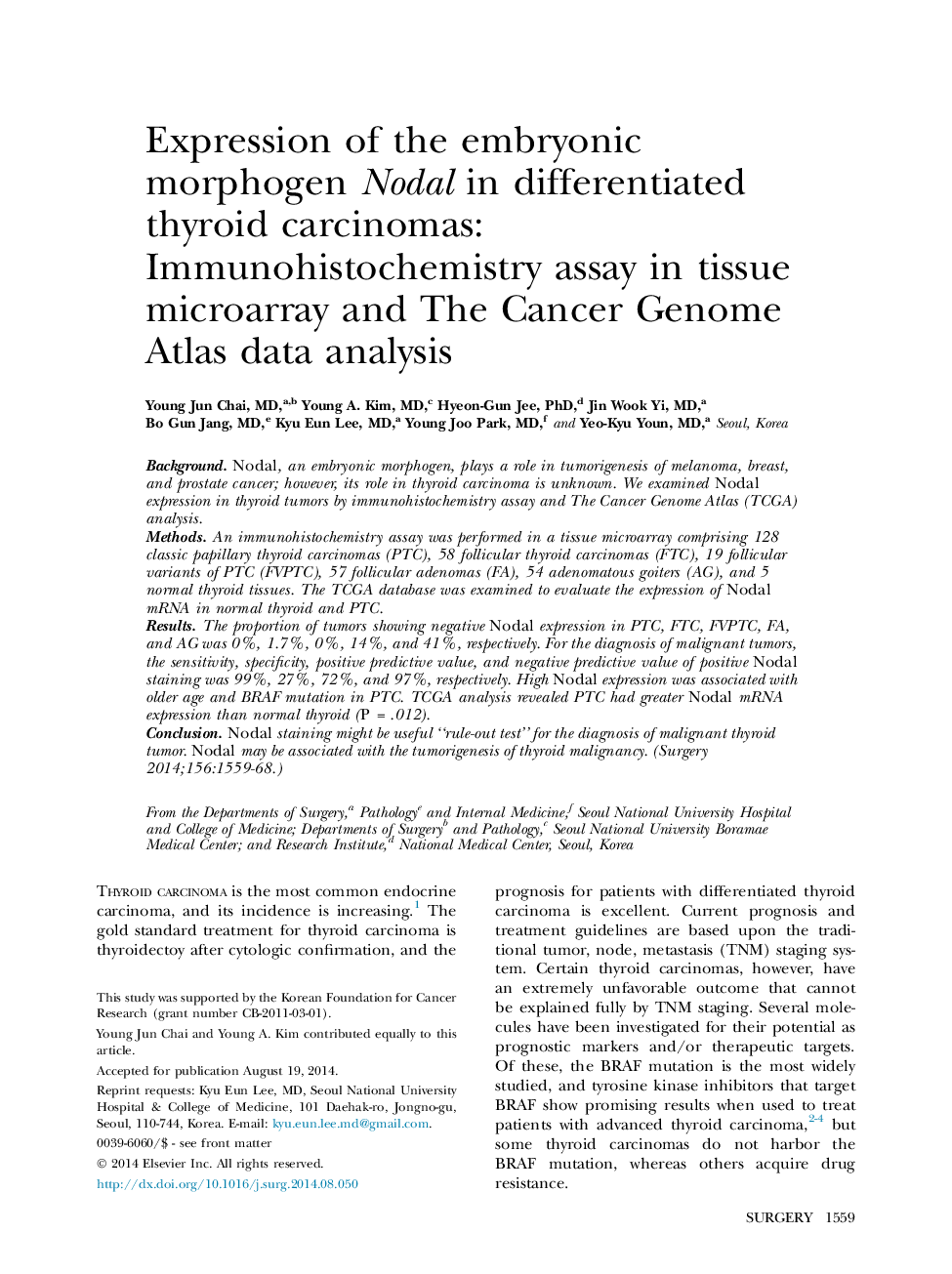| Article ID | Journal | Published Year | Pages | File Type |
|---|---|---|---|---|
| 4307463 | Surgery | 2014 | 10 Pages |
BackgroundNodal, an embryonic morphogen, plays a role in tumorigenesis of melanoma, breast, and prostate cancer; however, its role in thyroid carcinoma is unknown. We examined Nodal expression in thyroid tumors by immunohistochemistry assay and The Cancer Genome Atlas (TCGA) analysis.MethodsAn immunohistochemistry assay was performed in a tissue microarray comprising 128 classic papillary thyroid carcinomas (PTC), 58 follicular thyroid carcinomas (FTC), 19 follicular variants of PTC (FVPTC), 57 follicular adenomas (FA), 54 adenomatous goiters (AG), and 5 normal thyroid tissues. The TCGA database was examined to evaluate the expression of Nodal mRNA in normal thyroid and PTC.ResultsThe proportion of tumors showing negative Nodal expression in PTC, FTC, FVPTC, FA, and AG was 0%, 1.7%, 0%, 14%, and 41%, respectively. For the diagnosis of malignant tumors, the sensitivity, specificity, positive predictive value, and negative predictive value of positive Nodal staining was 99%, 27%, 72%, and 97%, respectively. High Nodal expression was associated with older age and BRAF mutation in PTC. TCGA analysis revealed PTC had greater Nodal mRNA expression than normal thyroid (P = .012).ConclusionNodal staining might be useful “rule-out test” for the diagnosis of malignant thyroid tumor. Nodal may be associated with the tumorigenesis of thyroid malignancy.
